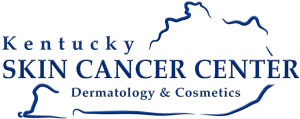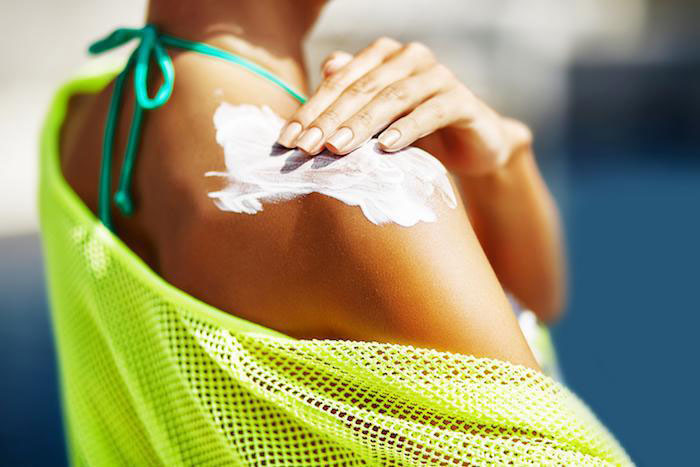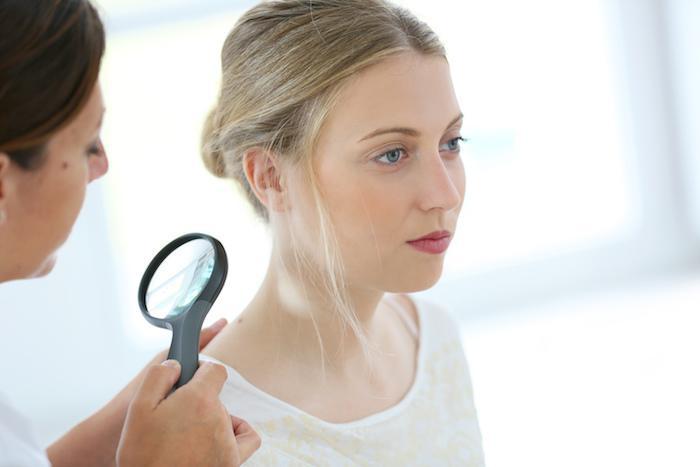Did you know that your skin has a love-hate relationship with the sun? On one hand, your skin needs the sun to help develop vitamin D, which is an essential ingredient in bone growth. But too much sun damages your skin and causes more harm than good.
Your skin naturally protects itself from overexposure by amping up its melanin production. As melanin, the skin’s pigment, increases, your skin gets darker and looks tan. This is actually your skin’s defense mechanism to protect itself. It doesn’t take much exposure to UV rays (which are abundant even on cloudy days) to burn your skin and penetrate the outer layer.
Once this happens, it reaches the dermis and damages or destroys the deeper skin cells, creating the perfect environment for skin cancer.
At Kentucky Skin Cancer Center, our team of skin cancer experts, led by Dr. Robert Skaggs, knows how to spot even the earliest signs of sun damage and offers skin cancer screening to detect areas of concern.
If you do have skin cancer, Dr. Skaggs can help with that, too, as he is one of the few dermatologists in the area who has been fellowship-trained in the cutting-edge Mohs micrographic surgical technique, a minimally invasive procedure that removes cancerous cells in tiny increments and preserves healthy tissue.
Of course, prevention is much better than any cure, so we encourage all our patients to exercise extreme caution when spending time outdoors. Here are our five best tips for staying safe in the sun.
1. Sunscreen still tops the list
Other than staying indoors or completely covered with clothing head-to-toe, there’s still no better way to face the sun than by using a good sunscreen. Just follow the rules to make sure your sunscreen does its job:
- Use only broad-spectrum sunscreens that protect against UVA and UVB rays.
- Choose an SPF of 30-50 (higher numbers are barely better).
- Reapply every two to three hours.
- Don’t believe labels that say “waterproof” or “sweatproof.”
- Check the expiration date.
Slather sunscreen over all your exposed skin, and consider clothing infused with UV protection if you spend long days in the sun.
2. Stay in the shade
As often as possible, stay in the shade. Whether you’re playing with your kids at the park, enjoying a baseball game, or working all day outdoors, putting a barrier between you and the sun can prevent serious sun damage to your skin.
If there are no trees or awnings nearby, wear a hat, or open up an umbrella to create your own shade.
3. Remember your lips
Some of the most vulnerable skin on your body is also the most forgotten when it comes to the sunscreen routine. Your lips contain no protective melanin, so they rely on you to take steps to keep them safe. That means using lip balm with sunscreen.
Not all lip balms contain sunscreen, so read the label carefully. Once you find a brand you like, buy a few tubes, so you have it handy all day long, whether at home, at work, or on the go.
4. Don’t forget to protect your eyes
Even the most diligent sun-safety people often forget to protect their eyes. They have their skin covered, but their eyes are left fully exposed to the sun’s harsh and harmful rays. Symptoms of sunburned eyes Include:
- Blurry vision
- Headaches
- Red eyes
- Eye spasms
- Cataracts
- Macular degeneration
- Eyelid cancer
Sunglasses that block UV rays are essential to your eye health.
5. Time your sun exposure
In addition to limiting your total amount of time in the sun, the clock can help protect you from sun damage by helping you decide the best time of day to go out or stay in.
The sun’s rays are most intense between 10am and 3pm, so do your best to avoid outdoor activities at that time of day.
What to do about sun damage
If you’re like most people, your skin has sustained at least a little sun damage over the years, even if you’ve done your best to protect it. Sun damage shows up in different ways on different people, but the most common signs are prematurely aged skin, wrinkles, and dark spots.
If these areas aren’t cancerous or precancerous, we can help you get rid of them and erase some of the damage through various cosmetic dermatology treatments, including:
Each of these treatments work in different ways to reduce wrinkles and spots, add volume, and stimulate your body’s own collagen production. To find out which one is best for you or to learn more about sun protection, call us at either our Bowling Green or Franklin, Kentucky, location, or book your appointment online now.






